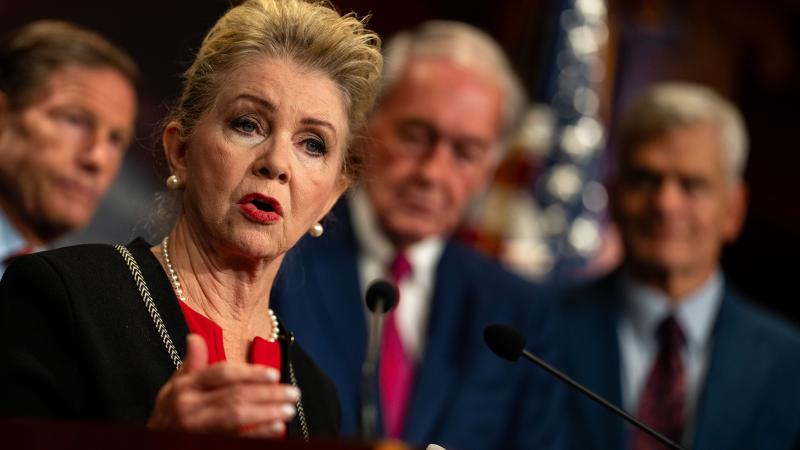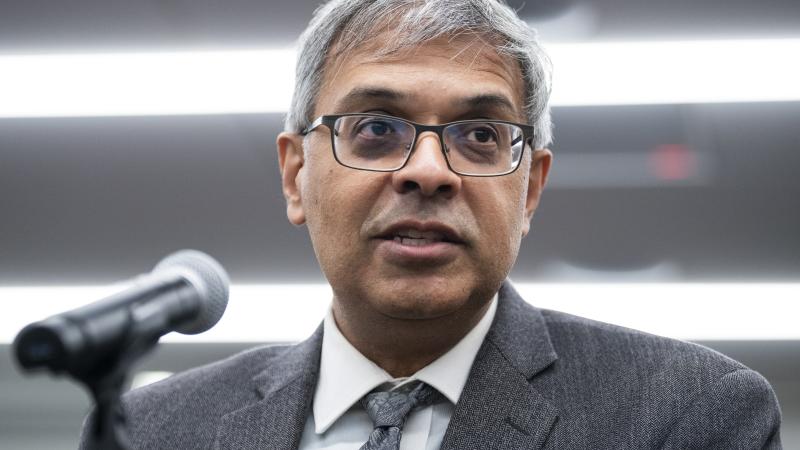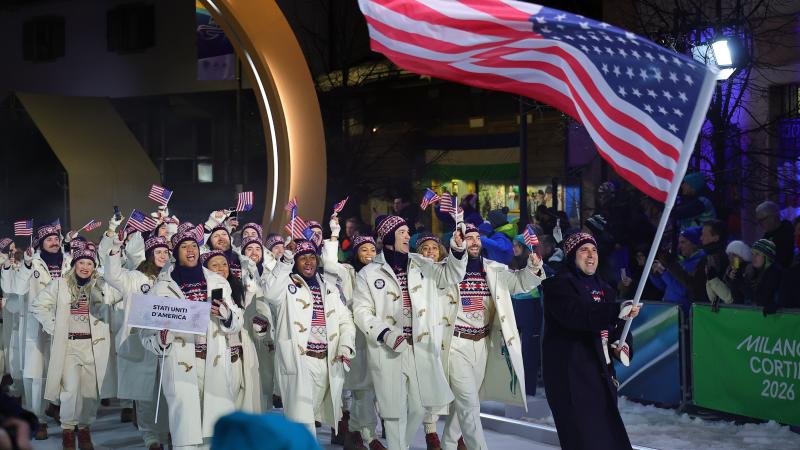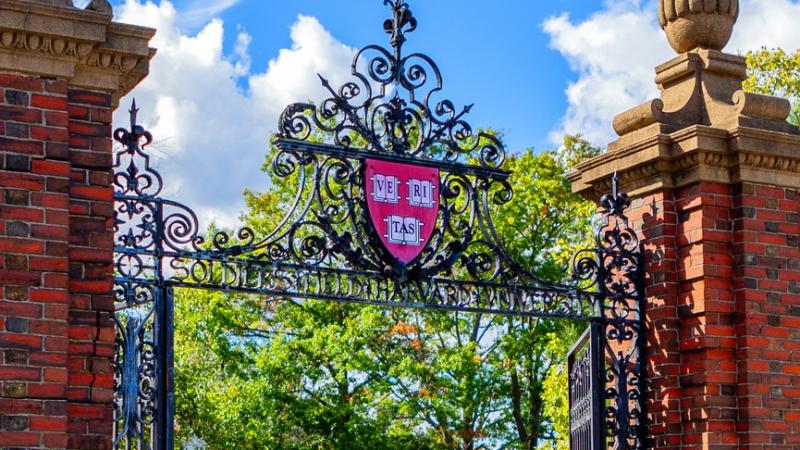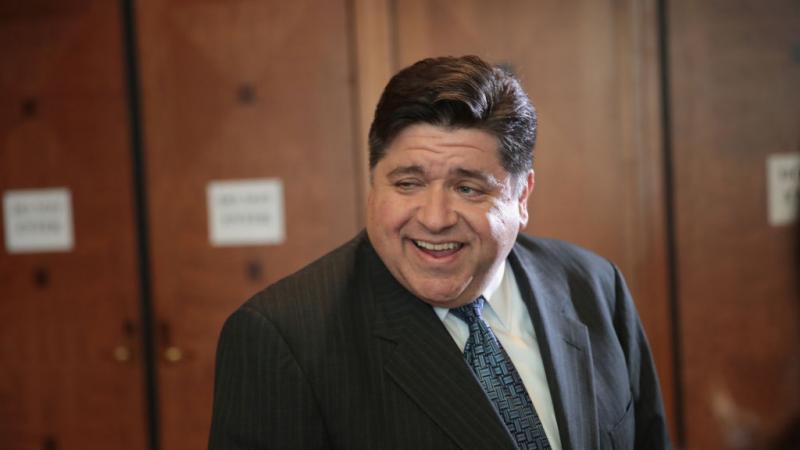Congress calls Trump’s TikTok plan a good first step, but concerns remain about algorithm control
The House CCP Committee chairman plans to conduct oversight of the deal's framework to ensure adherence to the law.
Congressional leaders see positive first steps in President Donald Trump’s TikTok deal, but are withholding full support until questions about control of the important content algorithm owned by China-based ByteDance are resolved. The Chairman of the House Select Committee on the Chinese Communist Party says that the promise of divestiture is a good first step on the way to a final deal, but noted once again that an important requirement of the law passed by Congress is severing China's connections to the app’s algorithm.
“Transitioning to a majority American-owned entity would mark an important step in that process that could mitigate some of the ByteDance threat depending on the details, but divestment was not the law’s only requirement,” Chairman John Moolenaar, R-Mich., said in a statement on Friday.
Staying within the guardrails
“The law also set firm guardrails that prohibit cooperation between ByteDance and any prospective TikTok successor on the all-important recommendation algorithm, as well as preclude operational ties between the new entity and ByteDance,” said the chairman.
The chairman promised that he would use his committee to conduct full oversight over this agreement, starting with an urgent briefing” that he requested from the Trump administration. Moolenaar also said he plans to hold a hearing next year with the leadership of the new American Tiktok entity, according to the press release.
TikTok’s operations in the United States have drawn significant scrutiny from Congress for years. Last year, Congress passed and President Joe Biden signed into law the bill requiring TikTok’s parent company, the China-based ByteDance, to either divest itself of the popular video sharing app or face a ban on operations in the United States.
The bill aimed to address concerns that the Chinese company exercised the ability to weaponize the app against the American people on behalf of the Chinese Communist Party’s goals by gathering and exploiting citizens' personal data.
Of particular concern is ByteDance’s proprietary content suggesting algorithm, which experts say could be exploited to influence users and U.S. public opinion and politics at large. There is some evidence of this claim. Earlier this year, a study found that TikTok suppresses anti-China content and influences user opinion on the communist country’s human rights record and society. The researchers from Rutgers University and the Network Contagion Research Institute assessed this was done by likely manipulation of the content algorithm, though no definitive determination could be made without access to the code.
The deal's framework
On Thursday, the White House announced the contours of a TikTok divestment deal that aims to address both major concerns.
The arrangement, to which Beijing has reportedly agreed, would see several American investors take a cumulative 80% controlling stake in TikTok. The China-based ByteDance would retain a 20% minority stake, according to the framework.
“The fundamental thing that we wanted to accomplish is that we wanted to keep TikTok operating, but we also wanted to make sure that we protected Americans’ data privacy as required by law, both because it’s the right thing to do, but also because it’s a legal requirement of the law that was passed last year by Congress,” said Vice President JD Vance at an Oval Office executive order signing on Thursday.
Trump signed an executive order with his determination that the framework deal his administration negotiated with ByteDance and Chinese authorities fulfills the requirements laid out by Congress in the divestment law.
“First, the divestiture removes the TikTok application and certain other applications from the control of a foreign adversary, as defined under the Act […]” reads the order.
“Second, the divestiture puts the operation of the algorithms and code, as well as content-moderation decisions, under the control of the new joint venture,” the order also asserts.
The president’s order also says that the divestiture deal “includes intense monitoring of software updates, algorithms, and data flows by the United States’ trusted security partners, and it requires all recommendation models, including algorithms, that use United States user data to be retrained and monitored by those trusted security partners.”
Threading the needle
The executive order shows that the administration has tried to thread the needle delicately between the requirements of American law and Congress on one hand, and Beijing’s demands on the other. ByteDance – the prized Chinese company – would reportedly be permitted to retain at least some influence over the company and a seat on the board. As for the algorithm, ByteDance appears willing to license it to the new U.S. company, which will monitor updates to ensure data security for Americans.
The president’s determination contained in the order that the current framework meets the legal requirements is evidence that the administration believes it has finally struck the proper balance after more than seven months of negotiations.
Concerns about CCP control remain
Congressional leaders previously expressed concerns about Chinese claims that the U.S. company would license the content algorithm, raising questions about whether the arrangement would meet the law they passed.
“Based on initial reports, I am concerned the reported licensing deal may involve ongoing reliance by the new TikTok on a ByteDance algorithm and application that could allow continued CCP control or influence,” Chairman John Moolenaar said in a statement last week, before the executive order.
Since congressional scrutiny on the app first began years ago, Beijing has been reluctant to allow the algorithm to fall permanently into American hands. In 2020, Beijing listed ByteDance’s social media algorithm on a restricted technologies export list, which designates certain technologies as vital to their national security and requires a review before any export or sale can take place.
“The Chinese Communist Party won't give up its control of the TikTok algorithm because it's one of Beijing's most potent weapons against Americans,” Michael Sobolik, a Senior Fellow at the Hudson Institute who specializes in U.S.-China relations, told Just the News earlier this year. “Any deal that leaves the algorithm in Beijing's hands would be illegal and unsafe.”
